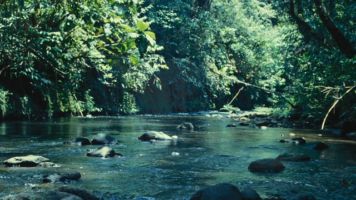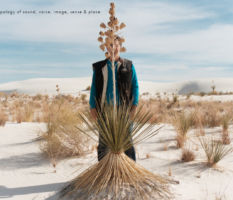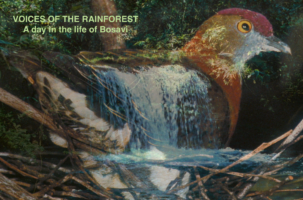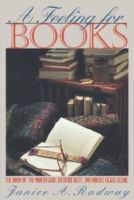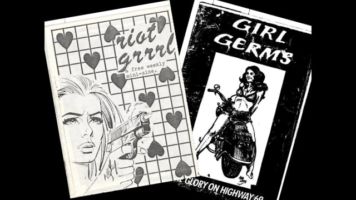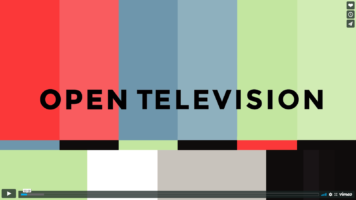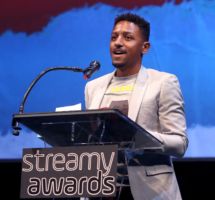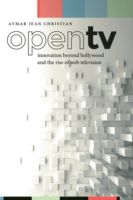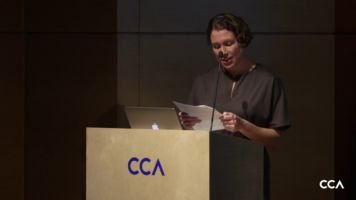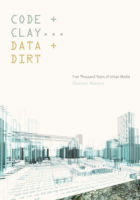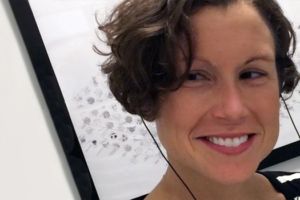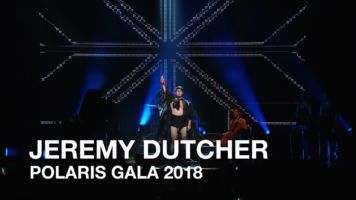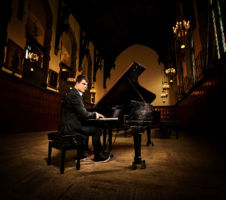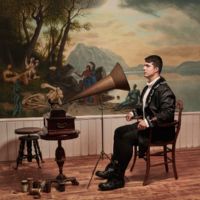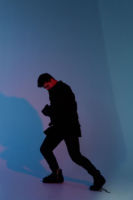
Making Matters Speaker Series – Schedule of Events
Presented by the Faculty of Information & Media Studies at Western University
All events open to the public.
Making Matters explores knowledge and expression in a range of forms, from song, birdcalls and language, to buildings, web series and zines. When people make things, something happens. Our five guests bring multidisciplinary expertise and deep practice to making and the study of making in the present and past. They help us understand how we come to know our worlds and how we might make them anew.
Voices of the Rainforest: A Day in the Life of Bosavi – Film Screening
Monday, September 30, 2019
7:00 p.m. | NBC Universal Screen Room (rm. 1401), University College
Film presented by Steven Feld, Professor Emeritus of Anthropology and Music, University of New Mexico, and Senior Scholar, School for Advanced Research. This event is co-sponsored by the Department of Anthropology at Western University.
About this event: Voices of the Rainforest, Steven Feld’s documentary sound art composition of a day in the life of the Bosavi rainforest and its inhabitants, was originally a 1991 Rykodisc CD. For the project’s 25th anniversary, the piece was recomposed in 7.1 cinema surround sound, in collaboration with Skywalker Sound editor Dennis Leonard. With the support of producer Mickey Hart and the School for Advanced Research, a film has now been built around the soundtrack, drawing both from 1976-1999 photographs, and cinematography and forest drone imaging from recent returns to Bosavi with filmmaker Jeremiah Ra Richards. The result is a 70 minute immersive eco-rockumentary, a cinematic concert for the ears, to be followed in 2020 by a companion documentary about the politics of development and sustainability in the Bosavi rainforest region.
Girls, Zines, and Their Travels: Imagining Lives, Crafting Archives for the Next Century
Tuesday, November 12, 2019
4:00 p.m. | FIMS Creative Commons (2nd floor), FIMS & Nursing Building
Presented by Janice Radway, Walter Dill Scott Professor of Communication Studies and Director, Gender & Sexuality Studies, Northwestern University. Presented with the generous support of the Andrew Osborn Fund. This event is co-sponsored by the Department of Women’s Studies and Feminist Research, the Department of English Studies and the Department of History at Western University.
About this event: Descriptive and analytic accounts of girl zines have proliferated in the years since they first seemed to explode onto the public scene during the 1990s. Most of these accounts, whether in the mainstream press or in scholarly circles, focus on girl zinesters’ engagement with feminism and trace their origins to the Riot Grrrl movement, which is itself usually explained as originating in the activities of a small number of female-fronted bands that developed in the Pacific Northwest. In fact, however, research in the numerous zine archives that have been organized since the late 1990s suggests that girls and young women of the period actually took up the practice of zine-making and zine circulation for a range of reasons and in somewhat different contexts. They were also differentially aware of zines and alternative publications created by young women well before the 1990s. Drawing on extended research in these archives and accounts of key interview encounters with several people involved in crafting, collecting and writing about zines and Riot Grrrl, this paper will consider the question of what it might mean to take account simultaneously of the variability of girl zine practice and the fact that, despite such differences, significant numbers of girls and young women together gravitated to the zine form during this highly unsettled decade. What was it about the 90s in particular, and the specificities of the zine form itself, that incited young women not simply to more public forms of self-expression but to the social activity of seeking out contact with others beyond familial and local friendship circles. This presentation will argue that girls turned to zine-ing as part of a struggle to re-imagine subjectivity and sociality in ways that were more fluid, porous, and collaborative than the models recommended by older forms and institutions like the novel, the school, the bourgeois family, and even the magazine. Ultimately, I will suggest that girl zine-ing ought to be seen as an analog effort to envision a different way of ordering social relations and that, as a result, it can tell us a great deal about the sources and meanings of the desire we now call “social networking.”
Open Platforms: Developing Culture in the Age of Big Data TV
Thursday, January 23, 2020
4:00 p.m. | FIMS Creative Commons (2nd floor), FIMS & Nursing Building
Presented by Aymar Jean Christian, Associate Professor of Communication, Northwestern University, and founder of Open TV, a platform for intersectional television pilots and series, supporting independent artists and producers in Chicago. This event is co-sponsored by the Department of Women’s Studies and Feminist Research at Western University, and the Nona MacDonald Organizational Communication Fund.
About this event: From Netflix to Facebook, platforms promise users a seamless space to engage and create culture. Expanding access to the means of production and consumption, they rapidly distribute a staggering number of representations. Yet behind the scenes, these intermediaries use largely quantitative big data sets to value culture and information, harnessing algorithms that sort, segregate, or systematize our interactions. Far from an open ecosystem, they discriminate, quickly, discreetly and with constant adaptation. This power is invisible or so complex as to evade textual analysis, the crux of most studies of cultural representation. The complexity of platform power demands scholars pay greater attention to culturally complex representations, or intersectionality, and adopt new methods for analysis that go beyond the text and identify alternative systems. I argue that developing culture in collaboration with intersectional artists and community can test whether social media can bridge disparate, segregated communities, helping researchers deconstruct platform power and advance what I call “networked solidarity.” Participatory methods show us how narratives emerge online and in physical space, allowing scholars to track the distance between representation on platforms and broader contexts of their production or exhibition. These methods might help us understand how to open platforms to develop culture in more organic, local and culturally specific ways, pointing a path to sustainable and equitable media economy.
Case Logics: Making Cities, Buildings, Equipment, & Gadgets that Give Form to Knowledge
Thursday, February 13, 2020
4:00 p.m. | FIMS Creative Commons (2nd floor), FIMS & Nursing Building
Presented by Shannon Mattern, Professor of Anthropology, The New School. This event is co-sponsored by the Department of Anthropology, and the Department of History at Western University, and the Toronto Star Lecture Series Fund.
About this event: In this talk I’ll explore how and what we know — through databanks and disciplinary knowledges, classification systems and privacy protocols — are manifested in the material world, at a variety of scales and through myriad forms of design. We’ll map how our bytes and pages scale up into interfaces, furnishings, architectures, urban plans, and large-scale infrastructures; and we’ll consider how this epistemological cartography can inform design.
EVENT POSTPONED
Jeremy Dutcher: Musical performance, and in conversation with Bimadoshka Pucan
Monday, March 16, 2020
7:30 p.m. | Paul Davenport Theatre, Talbot College
Performance by Jeremy Dutcher, vocalist, composer, musicologist, Polaris Prize and Juno winner, and in conversation with anthropologist Bimadoshka Pucan. This event is co-sponsored by Western University, the Don Wright Faculty of Music, the Department of Anthropology, and the Mary Brown Lecture Series Fund, and is co-hosted by Indigenous Studies, the Department of Women’s Studies and Feminist Research, and Indigenous Services.
Also: a special screening of the music video, “Tie Our Spirits,” by N’we Jinan Artists.
Admission is free but tickets are limited. Tickets will be available at the Paul Davenport Theatre Box Office starting at 6:45 PM on the day of the performance. Doors open at 7 PM.
For FAQ, parking and other useful patron information at the Don Wright of Music visit http://music.uwo.ca/events/useful-information.html
Please note: Western is completely smoke free, including evenings, weekends and intermission!
Contact: Becky Blue: fims-communications@uwo.ca
.


